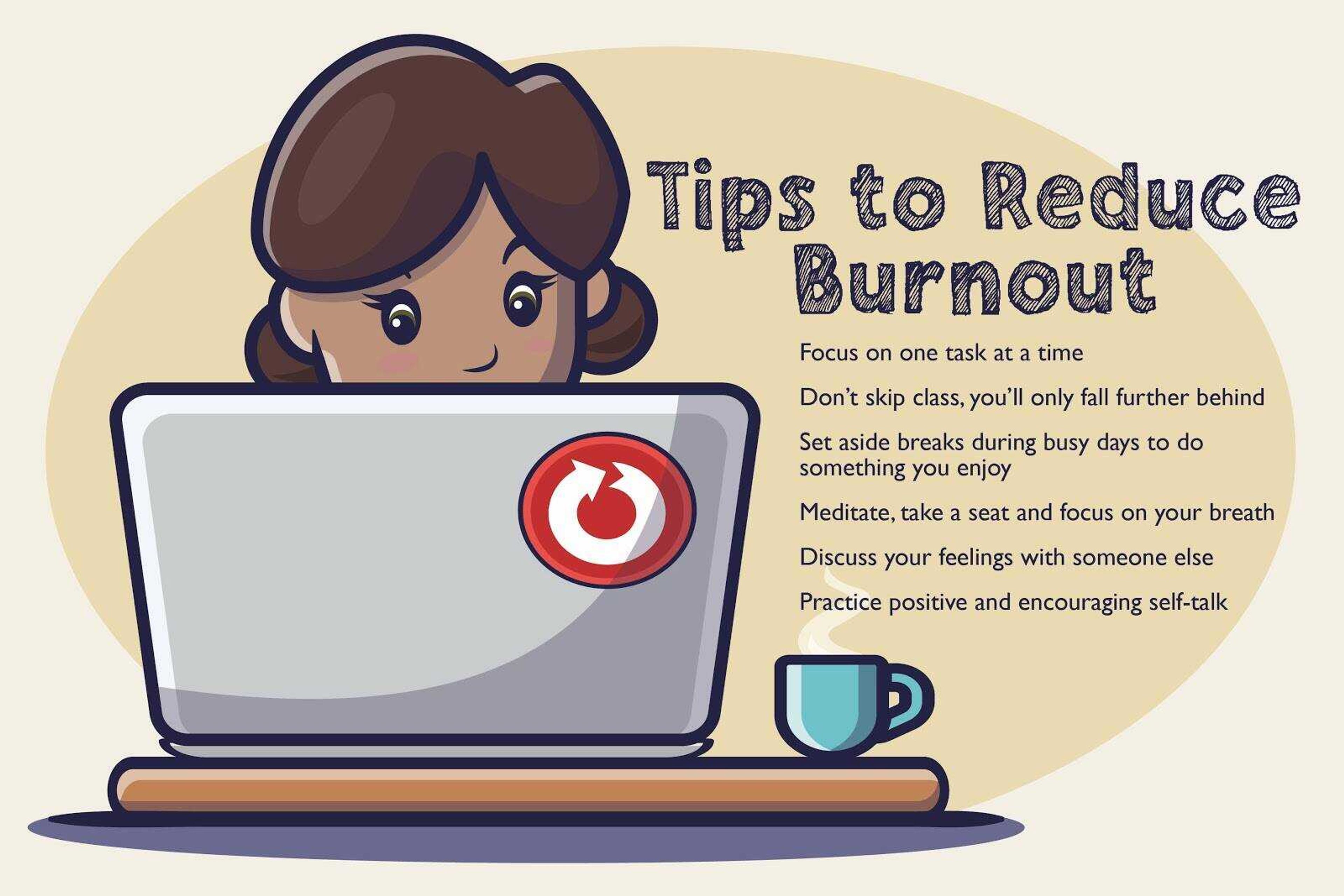Seven assignments due at once. Three tests to study for. It’s impossible to concentrate on one thing at once. You’re behind in every class. You’re burnt out. Every student has been there at one time or another.
So how did it get to this point, and how can you fight off that overwhelming feeling?
Assistant psychology professor Lesly Krome said burnout stems from a variety of factors at a person's work or school. These include lack of control over schedules, assignments or workload, work/school life imbalance and extremes of activity — meaning you need constant energy to fight through the monotony.
“One of the factors underlying [burnout] is a perceived lack of control,” Krome said. “[This feeling of] ‘it doesn’t matter if I try hard, it doesn’t matter if I try not at all — I’m gonna fail.’”
The week of March 15 -19 was originally planned as Southeast’s spring break before the schedule was changed last semester. Instead, two reading days were added to the schedule on Feb. 23 and March 17, and the beginning of the semester was moved back a week because of COVID concerns.
Psychology instructor Shawn Guiling said having spring break usually provides enough of a change to cancel out some monotony of the school year, and having those breaks spread out may not have the same effect by the end of the semester.
Guiling said once a person is feeling burnt out, there are a few ways to help fix the problem.
The first is to try and reestablish a feeling of control. Try not to focus on the decisions of other people — avoid getting upset or overwhelmed by the actions of others.
He said he noticed some students took the planned spring break week off despite the schedule changing, and he strongly advised against it.
“Some are taking their five days regardless, to have that mental health break,” Guiling said. “That will make them more stressed out because we went on with class.”
Changes to university curriculum and practices have been tough on students, staff and faculty alike. Guiling said students feed off the faculty, so trying to bring all the energy to class can sap professors even faster. He said it’s harder on Zoom calls to make sure activities draw students in.
Southeast student Kloe Allison stated her teachers “expect her to be Superwoman.”
“To me burnout means not having any motivation to accomplish or do things I usually love,” Allison stated. “The only time I can do things for myself is when I deprive myself of sleep.”
Guiling’s recommendation for fighting burnout is to take incremental breaks and do things you enjoy. Guiling said people say they don’t have time to do what they enjoy, so they don’t even attempt to do them. This is counter-productive, as setting aside 10 minutes here or there can help improve mental health.
According to Krome, younger generations like college students are more willing to talk about their feelings and experiences, whether through social media or in person. Krome said this is a good thing when working through burnout.
“This open line of communication allows for emotional and social support from people going through similar trials and tribulations,” Krome said.
She said this split among generations is common between sexes, as well. Women tend to seek help more often than men, so they are diagnosed at higher rates.
Burnout is closely related to depression, but depression is characterized by a feeling of hopelessness. Both Krome and Guiling said reaching this point is when a person should seek professional help. Information about counseling on campus can be found on the SEMO website.





